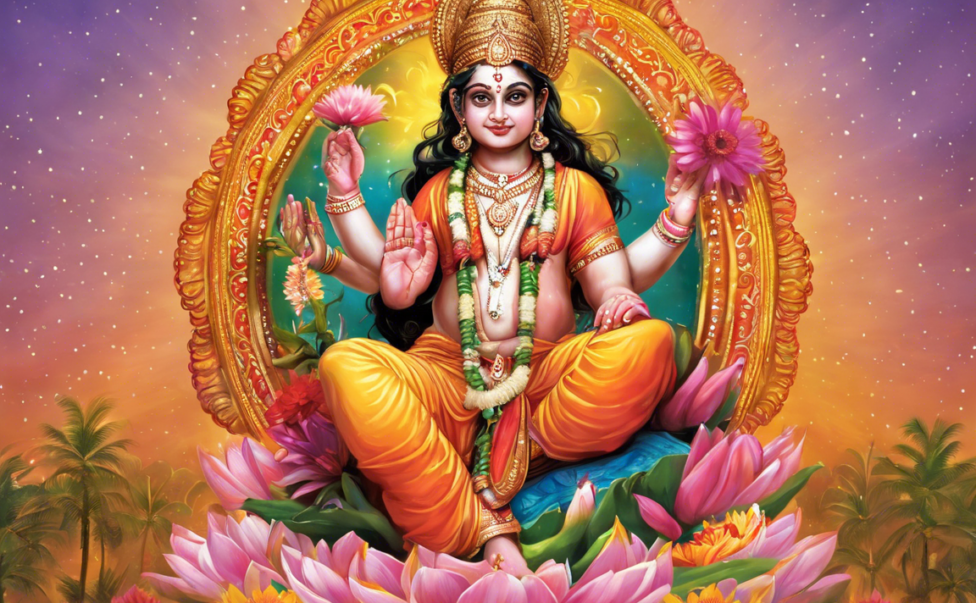Discover the Significance of Hindu New Year Celebrations
As the world welcomes another year, for many Hindus, this marks a significant event known as the Hindu New Year. Also known as Chaitra Shukla Pratipada, this day holds immense cultural and religious importance for Hindus worldwide. The Hindu New Year typically falls either in March or April, depending on the lunar calendar, and is celebrated with great enthusiasm and traditional rituals. Let’s delve deeper into the significance of Hindu New Year celebrations and the customs associated with this auspicious day.
Origins and Meaning of Hindu New Year:
The Hindu New Year is observed on the first day of the Chaitra month according to the Hindu lunar calendar. This day marks the beginning of Vikram Samvat, the traditional Hindu calendar. Legend has it that the Vikram Samvat calendar was founded by the legendary king Vikramaditya to commemorate his victory over the Sakas. The Vikram Samvat calendar starts from 57 BCE, making it one of the oldest Hindu calendars still in use.
Significance of Hindu New Year Celebrations:
-
Spiritual Renewal: The Hindu New Year signifies a time for spiritual renewal and rejuvenation. It is a time to reflect on the past year, seek blessings for the year ahead, and make resolutions for personal and spiritual growth.
-
Cultural Traditions: Hindu New Year celebrations are steeped in rich cultural traditions and customs. From performing puja (prayers) to wearing new clothes, every ritual holds symbolic significance and is believed to bring prosperity and good fortune.
-
Astrological Importance: According to Hindu astrology, the position of celestial bodies during the Hindu New Year can have a significant impact on individual lives and the overall well-being of society. It is believed that performing certain rituals during this auspicious time can mitigate negative influences and enhance positive energies.
-
Community Bonding: The Hindu New Year serves as a time for communities to come together, celebrate, and strengthen social bonds. Families and friends gather to exchange greetings, share meals, and participate in festive activities, fostering a sense of unity and camaraderie.
Customs and Rituals Associated with Hindu New Year Celebrations:
-
Gudi Padwa: In Maharashtra, the Hindu New Year is celebrated as Gudi Padwa. A Gudi, which is a decorated pole with a bright cloth and garlanded with flowers, neem, and mango leaves, is placed outside homes as a symbol of victory and prosperity.
-
Ugadi: In Karnataka, Telangana, and Andhra Pradesh, the New Year is celebrated as Ugadi. It is customary to eat a mixture of six tastes, representing the various experiences of life – sweet, sour, salty, bitter, spicy, and tangy.
-
Navreh: In Kashmir, Navreh marks the beginning of the Chaitra month and is celebrated with prayers, traditional feast, and the exchange of special dishes among family members.
-
Poila Boishakh: In West Bengal, Poila Boishakh is celebrated as the Bengali New Year with cultural performances, traditional rituals, and feasting on delicious Bengali delicacies.
FAQs (Frequently Asked Questions):
1. What is the significance of the Hindu New Year?
The Hindu New Year signifies a time for spiritual renewal, cultural celebrations, and astrological importance. It is a time for reflection, rituals, and community bonding.
2. How is the Hindu New Year calculated?
The Hindu New Year is determined based on the lunar calendar, with the first day of the Chaitra month marking the beginning of the new year in many regions.
3. What are some common rituals associated with Hindu New Year celebrations?
Common rituals include performing puja (prayers), wearing new clothes, decorating homes, preparing special dishes, and exchanging greetings and gifts with loved ones.
4. Why are specific foods eaten during Hindu New Year celebrations?
Eating specific foods, such as a mixture of six tastes during Ugadi, symbolizes the various experiences of life and is believed to bring balance and prosperity in the new year.
5. How do different regions in India celebrate the Hindu New Year?
Different regions in India have unique customs and traditions for celebrating the Hindu New Year, such as Gudi Padwa in Maharashtra, Ugadi in Karnataka, Telangana, and Andhra Pradesh, Navreh in Kashmir, and Poila Boishakh in West Bengal.
In conclusion, the Hindu New Year is a time of deep spiritual significance, cultural traditions, and communal celebrations. It serves as a reminder to cherish the past, embrace the present, and welcome the future with optimism and positivity. By partaking in the customs and rituals associated with the Hindu New Year, individuals seek blessings for a prosperous and harmonious year ahead.

